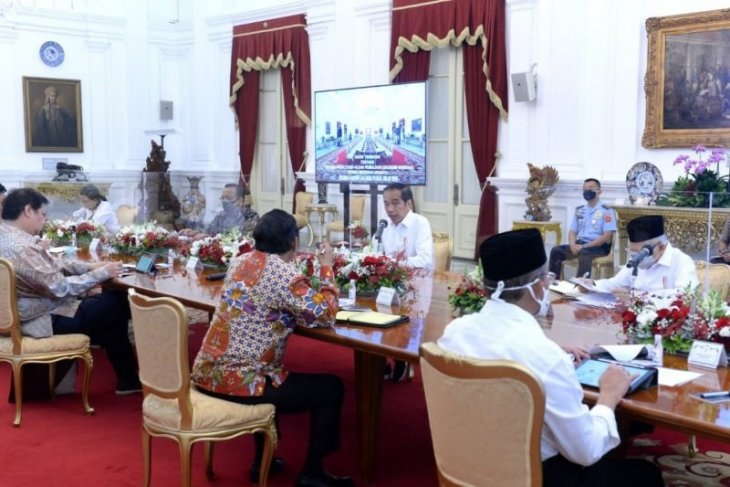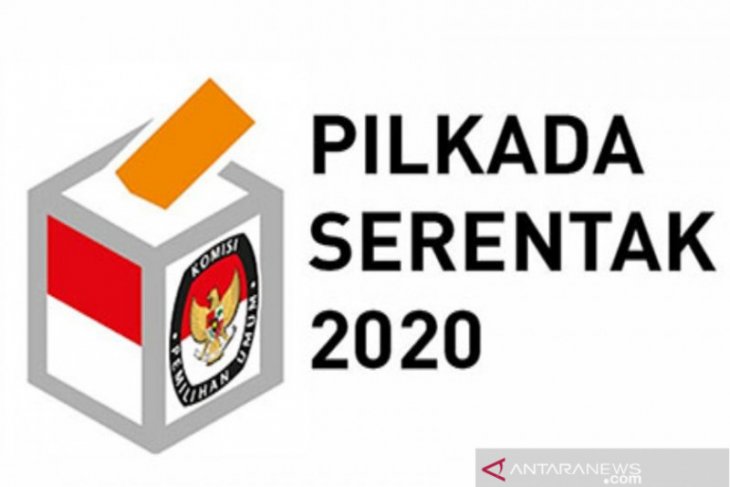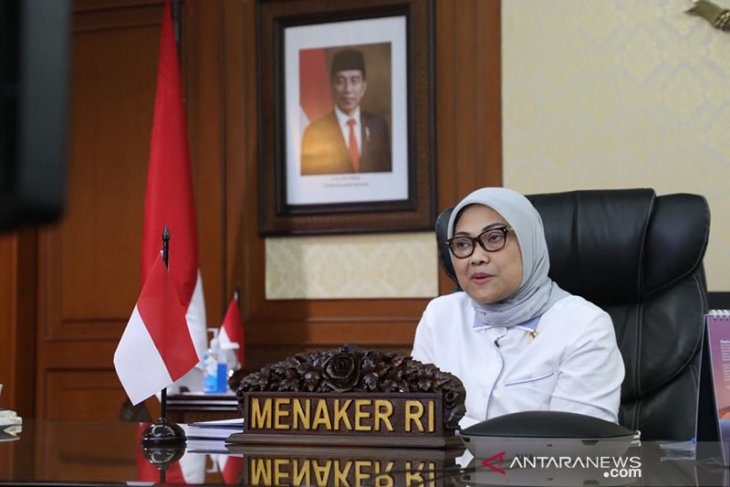Live Streaming
Program Highlight
Company Profile
Embassy of Pakistan Organizes a Seminar to Commemorate Day of Exploitation
Written by Ani HasanahJakarta (VOI News) - As part of the series of events arranged by the Mission in commemoration of “Yom e Istehsaal” (day of Exploitation) as a mark of solidarity with the Kashmiri people, the Embassy of Pakistan in Jakarta organized a Seminar Thursday (06/08). The event was attended by a large number of Indonesian scholars, university professors, university students and members of Muslim organizations. Highlighting the historical as well as legal position on Jammu & Kashmir Dispute, Sajjad Haider Khan, Charge d’ Affaires of Pakistan reiterated that Jammu & Kashmir remains an Internationally recognized dispute and the longest dispute ever at the United Nations Security Council Agenda. Sajjad Haider Khan briefed the participants on the evolving situation in Indian Illegally Occupied Jammu & Kashmir since 5 Aug 2019. He expressed serious concerns over the gross Human Rights Violations, Sexual abuse, violence against women & children and the Indian attempts to bringing demographic changes in the region. Sajjad Haider Khan urged Indonesian brothers and sisters, international community and the Government of Indonesia to express solidarity with the innocent people of Jammu & Kashmir and extend their valuable support to peaceful resolution of the dispute in accordance with the relevant UNSC resolutions. (VOI/Release/AHM)
August
Ensure High Voter Turnout in Local Elections amid COVID-19: President
Written by Ani Hasanah
President Joko Widodo chairs a cabinet meeting. (ANTARA/HO-Kris-Biro Pers Sekretariat Presiden)
President Joko Widodo (Jokowi) has called on related ministries and the General Elections Commission (KPU) to impose stringent health protocols to attain maximum participation rate in this year's simultaneous regional elections on Dec 9.
"Most importantly, we must be able to convince voters that the KPU and government are highly concerned about public health and safety," he stated at a virtual meeting held to discuss preparations for the 2020 regional elections at the Merdeka Palace in Jakarta Wednesday.
In the midst of this novel coronavirus disease outbreak, several countries, including Germany, Singapore, South Korea, and France, had convened their regional and national elections, Jokowi noted.
The strict imposition of health protocols to break the chain of COVID-19 infection was deemed crucial to convince eligible voters to cast their votes in ballot booths. Thus, this festival of democracy could run peacefully and fairly, he emphasized.
"The strict enforcement of health protocols will also reflect sound management and offer a sense of safety and security to the voters that would also have a positive impact on the participation rates," he noted.
President Jokowi also stressed on the importance of enforcing health protocols across all stages of this year's simultaneous regional elections to ensure that this democratic process runs in a fair and peaceful manner and does not lead to the creation of new COVID-19 clusters.
"Of course, this is a new momentum to demonstrate a new approach to hold simultaneous regional elections and an innovative way for both organizers and participants to practice democracy amid this COVID-19 pandemic situation," he affirmed.
Some 270 regions in Indonesia, comprising nine provinces, 224 districts, and 37 cities, will hold regional elections on Dec 9, 2020.
Coronavirus infections initially surfaced in the Chinese city of Wuhan at the end of 2019.
COVID-19 thereafter spread to over 215 countries and territories, including 34 provinces of Indonesia, with a huge rise in death toll.
Papua has kept making persistent, all-out efforts to flatten the coronavirus curve.
As of August 4, Indonesia had registered 1,922 new confirmed cases, thereby bringing the tally to 115,056, while the total number of people recovering from COVID-19 had reached 72,050, with 1,813 new recoveries.
The death toll has reached 5,388, with 86 people additionally succumbing to COVID-19, according to the Indonesian Task Force for COVID-19 response.
A total of 22,902 specimens from 13,456 people were examined at 320 laboratories across Indonesia on Tuesday, thereby bringing the total count of specimens subject to laboratory examination to 1,575,043 from 907,987 people so far.
East Java emerged as the province with the highest number of confirmed cases reaching 430; followed by 410 cases in Jakarta; 119 cases in South Kalimantan; 117 cases in South Sulawesi; and 94 cases in West Java. (ANTARA)
August
Jokowi Highlights Importance of Enforcing Health Protocols in Pilkada
Written by Ani Hasanah
President Joko Widodo stressed on the significance of enforcing health protocols across all stages of this year's simultaneous regional elections (Pilkada) to ensure a fair and peaceful democratic process and no new COVID-19 clusters.
"Of course, this is a new momentum to demonstrate a new approach to holding the simultaneous regional elections and an innovative way for both organizers and participants to practice democracy amid this COVID-19 pandemic situation," he noted in Jakarta on Wednesday.
At a virtual meeting held to discuss preparations for organizing the simultaneous regional elections at the Merdeka Palace here, Widodo called for the upcoming regional elections to be held fairly and peacefully in addition to ensuring security and safety for organizers and voters.
A total of 270 regions in Indonesia, comprising nine provinces, 224 districts, and 37 cities, will organize regional elections on Dec 9, 2020.
In connection with this democratic fiesta, People's Consultative Assembly (MPR) Speaker Bambang Soesatyo drew attention to the importance of organizing it in a fair and democratic manner.
Soesatyo urged the General Elections Commission (KPU) and Elections Supervisory Body (Bawaslu) to take punitive action against regional head candidates found to have misused COVID-19 relief funds for political campaign trails.
"The KPU and Bawaslu must take firm action, as mandated by regulations, against the incumbent regional leaders contesting in the elections if they are found to be misusing the COVID-19 relief funds for their own political campaigns," he emphasized in a recent statement.
In response to reports sent by community members to the Corruption Eradication Commission (KPK), Soesatyo pressed for imposing sanctions on regional head candidates found violating laws and regulations.
Soesatyo called for the KPU and Bawaslu to work closely with the anti-graft body for continually monitoring the implementation of COVID-19-related relief programs to prevent embezzlement of funds before the convening of the simultaneous regional elections.
Soesatyo also warned that participating regional head candidates should not misuse the state's facilities and funds for matters unrelated to the handling of the COVID-19 crisis. (ANTARA)
August
Minister Stresses on Vocational Training to Reap Demographic Bonus
Written by Ani Hasanah
Minister of Manpower Ida Fauziyah in her office, Monday, July 13, 2020. (ANTARA/kemnaker.go.id/pri)
Minister of Manpower, Ida Fauziyah, on Tuesday underlined the need for more vocational training to build a skilled workforce and strengthen Indonesia's human resources (HR) to help the country benefit from the demographic bonus.
"Indonesia has entered a period of demographic bonus which will peak in 2030, with the (proportion of) population in the productive age (group) more than that in the unproductive age (group),” Ida Fauziyah said in Jakarta on Tuesday.
The minister stressed that the period of demographic bonus is a golden opportunity that needs to be utilized properly through human capital development.
At the moment, the minister noted, even though Indonesia has the largest population in ASEAN, it still lags in terms of development of HR capabilities compared to other countries in the region.
The main challenge Indonesian faces in the employment sector is that the majority of its workers have only had a high school education or less. About 56 percent of Indonesian workers are engaged in the informal sector. Meanwhile, workers aged 15-24 years, who are mostly high school or vocational school graduates, make up the largest number of the unemployed.
Low levels of ability would affect productivity and thereby, how well Indonesia utilizes its demographic bonus, Ida pointed out. Therefore, steps to build the nation’s human resource need to be taken so that the demographic bonus can aid national development, she explained.
One way to build human resource would be to strengthen vocational education and training programs, which are under the authority of the Ministry of Manpower, by revamping vocational training centers (BLK) owned by ministries and local governments.
The Ministry of Manpower has set up BLKs in 15 provinces and efforts are being made to expand their presence across Indonesia.
As part of this push, the Ministry of Manpower plans to add 1,000 more the community vocational training centers (BLK) this year, Ida said. (ANTARA)



